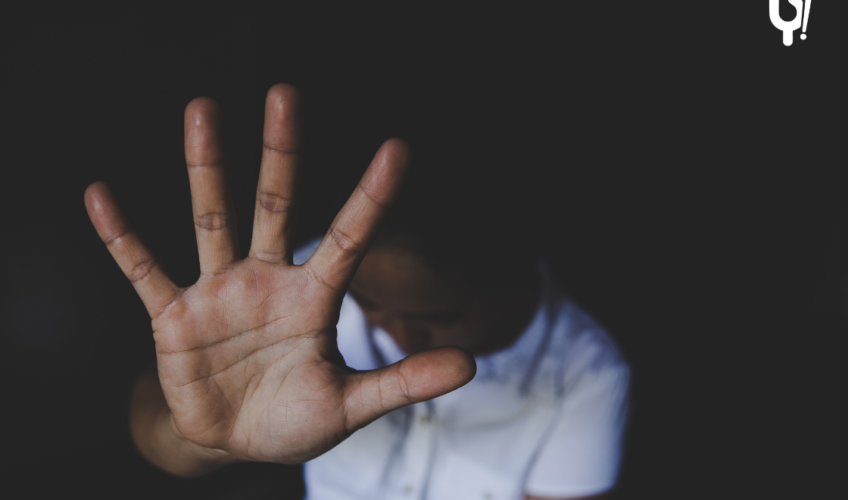Gender-based violence remains a distressing and prevalent issue in Nigeria, with femicide, sexual harassment, and rape casting a dark shadow over communities and claiming countless lives of women and girls.
The statistics are undeniably grim. According to recent data, Nigeria has witnessed a significant rise in femicide, with an estimated number of women being killed because of domestic disputes and toxic relationships. Sexual harassment remains distressingly prevalent, affecting women of all ages in various settings, from workplaces to public spaces. Rape, one of the most heinous crimes, continues to plague society, with numerous cases going unreported due to fear, stigma, and a lack of trust in the justice system.
A Deeper Look at the Numbers
A comprehensive collection of advocacy briefs sponsored by the Spotlight Initiative present a compelling compilation of facts, context, and recommendations that expose the harsh reality faced by women and girls across the country.
- Physical Violence: An alarming statistic reveals that almost one in three women aged 15-49 in Nigeria (31%) has experienced physical violence.
- Sexual Violence: Disturbingly, one in four girls, including young children, falls victim to sexual violence in Nigeria.
- Domestic Violence: The prevalence of domestic violence is alarmingly high, with nearly two out of every ten married women and girls (16%) reporting experiencing physical or sexual violence from their spouses or partners at some point in their lives.
- Healthcare Challenges: Shockingly, 86% of individuals seeking medical attention due to sexual assault in healthcare facilities are women and girls.
- Impunity: Only a mere 0.9% of perpetrators of sexual assault are brought to trial in Nigeria, with an alarmingly low conviction rate. This glaring statistic reveals the profound challenges faced by survivors in accessing justice.
- Impact of COVID-19: The COVID-19 pandemic and associated lockdown measures had a devastating impact on violence against women in Nigeria. Shockingly, domestic violence surged by a staggering 297% within a single month, exacerbating an already dire situation.
Recent Tragic Incidents Expose Gender-Based Violence in Nigeria
A series of recent tragic incidents have shed light on the grim reality faced by women and girls in Nigeria.
Benjamin Best, known as Killaboi, recently confessed to the murder of his 21-year-old lover, Augusta Osedion. In a series of Instagram posts on Monday, Killaboi said he and his girlfriend had an argument after which he “mistakenly” stabbed her to death. He said he did not intend to kill Osedion while praying for eternal peace. Osedion had been reported missing for several days, prompting Onwabhagbe Cordelia, her mother, to visit Killaboi’s residence in Oral Estate, Ikota, Lagos state. This was where they found her dead body
Additionally, a shocking incident unfolded in Anam, a community in Anambra West Local Government Area. Six boys, aged between 16 and 27, allegedly gang-raped a 19-year-old girl. To compound the horror, one of the perpetrators filmed the heinous act, perpetuating further humiliation and trauma for the victim.
On July 8, 2023, the disturbing truth about Funferekenye “Bodiowei” Koroye’s abusive behavior towards his ex-partners was exposed on social media. Multiple allegations of emotional manipulation, stalking, and rape surfaced, painting a picture of a serial abuser. His recent attack on his ex-girlfriend at a gallery, preceded by months of harassment, further emphasizes the urgency of addressing toxic masculinity and holding perpetrators accountable.
The issue is not confined to Nigeria alone. In a high-profile case in Colombia, John Poulos, an American man, stands accused of killing his 21-year-old DJ girlfriend, Valentina Trespalacios, stuffing her dead body in a suitcase and abandoning the suitcase in a dumpster. Prosecutors seek a prison term of over 35 years for aggravated femicide and concealment of evidence.
Reframing the Conversation and Taking Collective Action
Amidst this harrowing reality, we must ask ourselves: How are men truly affected by this supposed gender war when it is predominantly women who suffer and die at the hands of men?
One concerning aspect that exacerbates violence against women is the emergence of misogynistic content. In the quest for viral fame and financial gain, some men have shamelessly embraced narratives that fuel hatred, objectification, and violence toward women. Misogyny content has become one of the trendiest and easiest paths for men to go viral and monetize their actions, perpetuating a cycle of toxicity and endangerment.
Misogyny content also dismisses the severity of the situation naming the fight against Gender-Based Violence and equal opportunities for women as a ‘Gender War’
The notion of a gender war implies a battle fought on equal terms, with both sides experiencing losses and gains. However, when we analyze the grim reality of violence against women in Nigeria, it becomes apparent that the term “gender war” is a misnomer. It fails to capture the deeply unequal power dynamics and the disproportionate toll it takes on women.
Statistics reveal a stark truth: women bear the brunt of violence in our society. Femicide, sexual harassment, and rape disproportionately affect women, leaving them vulnerable, traumatized, and, in the worst cases, dead. How can we call it a war when one side consistently suffers the most?
The alarming rates of femicide underscore the gravity of the issue. Women are losing their lives at the hands of their partners, family members, and strangers. These tragic incidents expose the pervasive nature of gender-based violence and the urgent need for a comprehensive response. It is disheartening to witness the victim-blaming mentality that often accompanies these cases as if women are somehow responsible for their own deaths.
This victim-blaming mentality obscures the real issue at hand, diverting attention from the urgent need to address the deeply rooted misogyny and patriarchal power structures that perpetuate this violence.
Sexual harassment remains an everyday reality for women in Nigeria. From streets to workplaces, public transportation to educational institutions, women face unwelcome advances, lewd comments, and inappropriate touching. This constant infringement on their safety and dignity creates an environment of fear and undermines their freedom to navigate public spaces without threat.
Furthermore, the statistics on domestic violence paint a distressing picture. Many women endure physical and sexual abuse within their own homes, trapped in relationships marked by power imbalances and toxic dynamics. The psychological and emotional scars left by this violence can last a lifetime, hindering their personal growth, well-being, and ability to contribute fully to society.
In the face of such overwhelming evidence, it is clear that men are not experiencing the same level of violence and oppression. While there may be instances where men also fall victim to violence, the scale and severity of the issue indicate an undeniable gender imbalance. Men are not subjected to systemic discrimination, objectification, and the constant threat of violence that women face on a daily basis.
Therefore, it is crucial to reframe the conversation surrounding the gender war. Rather than portraying it as an equal battle, we must acknowledge the asymmetry in power and recognize the urgent need for change. It is imperative to challenge patriarchal norms, dismantle toxic masculinity, and foster a society that values and respects women’s rights. This requires a collective effort from both men and women to create a more equitable future.
To address the gender war effectively, we must prioritize prevention through education, raise awareness about the consequences of violence, and promote gender equality in all aspects of life. Implementing and enforcing laws that protect women, support survivors, and hold perpetrators accountable are essential steps toward achieving justice and ending the cycle of violence.
We must acknowledge that the gender war in Nigeria is not a balanced conflict. Women are disproportionately affected by violence, making it crucial to acknowledge the unequal toll they bear. By recognizing this reality and working towards systemic change, we can truly address the root causes of violence against women and create a society where everyone can live free from fear and oppression.














